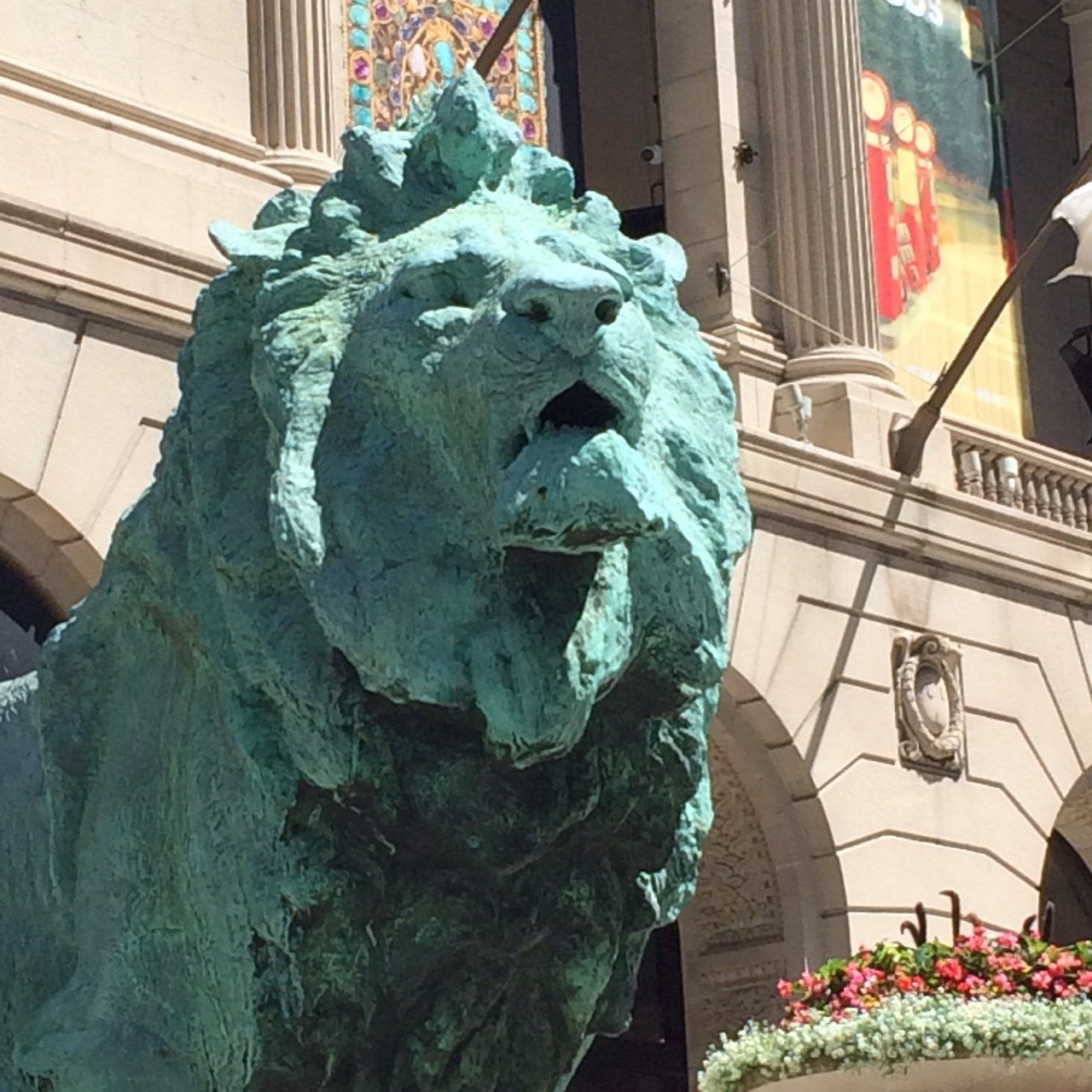Heart Of A Lion
“Courage is resistance to fear, mastery of fear - not absence of fear.” Mark Twain
Heart Of A Lion
by
Kelly Anderson
A few weeks ago, a beautiful letter landed in my inbox. It was written by Sal Khan, founder of the Khan Academy, to his younger self. A letter from 2019 Sal to 2009 Sal. There were many things in the letter to love, things like self-reflection, vulnerability, honesty, humility, and humor. And courage. The thing that really stayed with me was the courage revealed in that letter.
First, if you’re not familiar with Sal Khan and Khan Academy , it’s a cool story. Sal discussed it in a 2011 Ted Talk , but in a nutshell, while working as an equities analyst, Sal created short YouTube videos on various math concepts as a resource to use while tutoring his young cousins. The simple little videos were a great help to his cousins, and because there was no reason to keep them private, Sal set the YouTube privacy settings to public. Surprisingly, complete strangers started finding the videos, and let him know how beneficial they were. This intrigued Sal. Eventually, he left his career as an equities analyst to focus on building Khan Academy, a nonprofit with the stated mission of providing a free, world-class education to everyone, everywhere. The organization, based on the format of those simple videos, has filled a need and now reaches millions of people every day.
My brief description of Khan Academy doesn’t do justice to the courage it took for Sal to leave his career and start the nonprofit, but his letter touches on the risks he took to follow his dream. At the time, he and his wife were expecting their first child. He initially had no financial backing and had to rely on his personal savings to live and start the organization. And he feared that people would think he was, as he put it, “delusional”!
It took courage to face those risks, but there were other risk factors that Sal didn’t talk about. Sal’s education and professional experience had prepared him to work in the world of hedge funds and high finance. He had devoted quite a bit of energy to earn degrees from MIT and Harvard, and then spent several years gaining valuable experience in equities. Leaving the promising career you’ve trained for takes courage.
Starting Khan Academy not only meant leaving the world of investments behind, it meant jumping into the education arena. And, while Sal had impressive credentials, they weren’t as an education professional. Yet, despite the fact that he brought no related degrees or experience, he planned to use his simple videos to educate the world, for free. His vision involved stepping into the well-established educational system - and possibly disrupting that system. Pursuing his vision took great courage, strength, and a fierce sense of personal trust.
The story of Sal Khan’s journey with the Khan Academy brings to my mind a quote from Wendell Berry , “There are, it seems, two Muses: the Muse of Inspiration, who gives us inarticulate visions and desires, and the Muse of Realization, who returns again and again to say, ‘It is yet more difficult than you thought.’ This is the muse of form.” Both muses present challenges. The Muse of Inspiration requires curiosity, awareness, and an open mind. But the Muse of Realization and Form is, I believe, the most difficult. This muse requires the courage and strength to overcome fears, believe in yourself, and persist, despite risks and resistance.
The Muse of Realization and Form is the one that stops many visions from becoming reality. To have the big dream is one thing, to have the courage to face the risks, to persist, and to make it happen is another. Wendell Berry also offered words which I find encouraging when thinking about the challenge from the Muse of Realization and Form. He said, “It may be, then, that form serves us best when it works as an obstruction to baffle us and deflect our intended course. It may be that when we no longer know what to do we have come to our real work and that when we no longer know which way to go we have begun our real journey. The mind that is not baffled is not employed. The impeded stream is the one that sings.”
So maybe the magnificent success of the Khan Academy is because of, not in spite of, the fears and risks and courage required by Sal to bring his vision to reality. And maybe my dreams, and your dreams, will become reality, will sing all the more sweetly, because of the fears and risks and courage and strength required of us to believe in ourselves, to trust, and to persist. Especially when we don’t know which way to go, and what to do next.
Links
Sal Khan - “Letter to My Past Self”
Ted Talk - Sal Khan - Let’s Use Video to Reinvent Education
Wendell Berry - “Standing by Words: Essays”
Photo Credits
Lion In Chicago: photo by Kelly Anderson (cover & at the head of the article)











